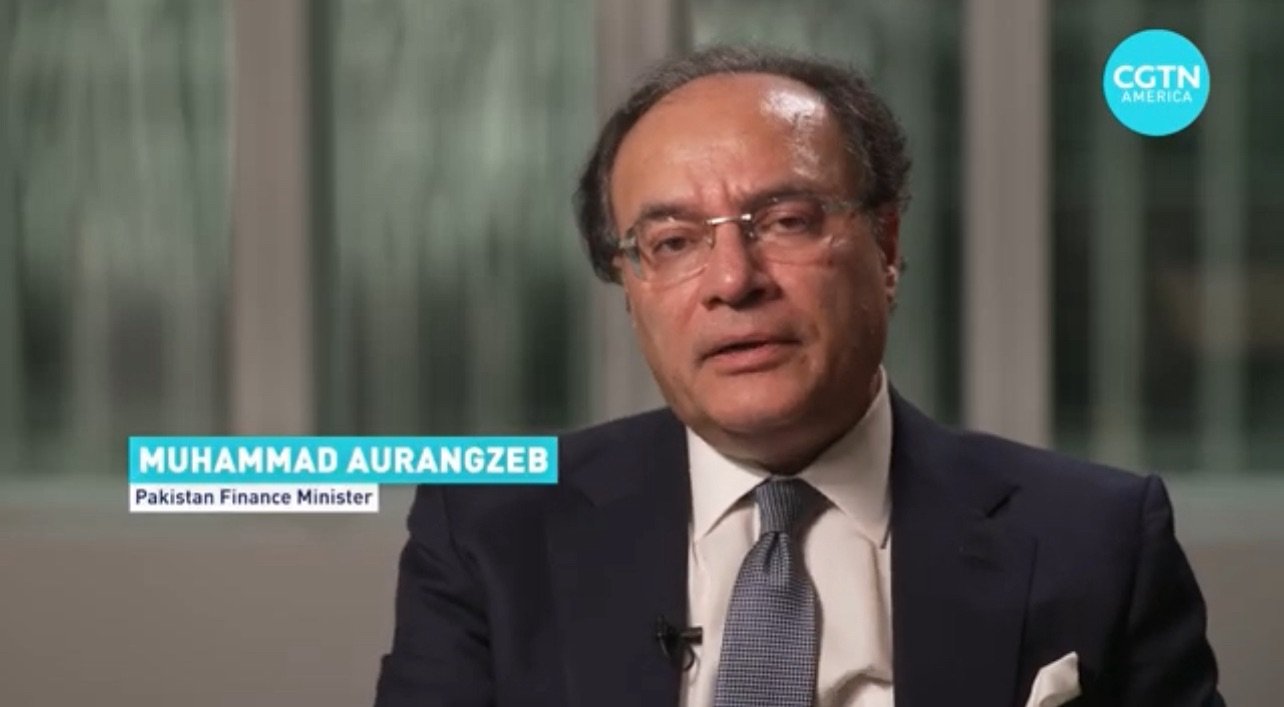Finance Minister Highlights Opportunities in China, GCC, Central Asia, and Africa
Key Takeaways:
i) Pakistan’s Finance Minister suggests a potential decline in global trade.
ii) This shift presents an opportunity for Pakistan to focus on regional connectivity.
iii) Pakistan is actively pursuing stronger ties with China, the GCC, Central Asian Republics, and Africa.
Money Matters Moniy– In a recent interview to China’s CGTN, Pakistan’s Finance Minister, Muhammad Aurangzeb, indicated a potential shift in the global trade landscape, suggesting a possible decline. However, the minister views this as an opportunity for Pakistan to strengthen its regional connections and explore new markets.
During the interview, “Pakistan’s Finance Minister, Muhammad Aurangzeb, suggests that global trade may be taking a backseat, but this presents an opportunity to explore regional corridors and connectivity”.
The interview highlights Pakistan’s active engagement with several key regions: China, the Gulf Cooperation Council (GCC), Central Asian Republics, and Africa. These regions are seen as potential new markets for diversification and growth, leveraging regional corridors.
Pakistan’s strategic location makes it a crucial player in regional connectivity. The China-Pakistan Economic Corridor (CPEC), a part of China’s Belt and Road Initiative, is a prime example of this. This project aims to improve infrastructure and trade links between Pakistan and China, with significant economic implications for the region.
Furthermore, Pakistan’s historical and cultural ties with the GCC and Central Asian countries offer opportunities for increased trade and investment. The country is also actively seeking to expand its economic footprint in Africa, a continent with a rapidly growing market.
By focusing on these regional partnerships, Pakistan aims to mitigate the impact of any potential downturn in global trade and secure its economic future.




